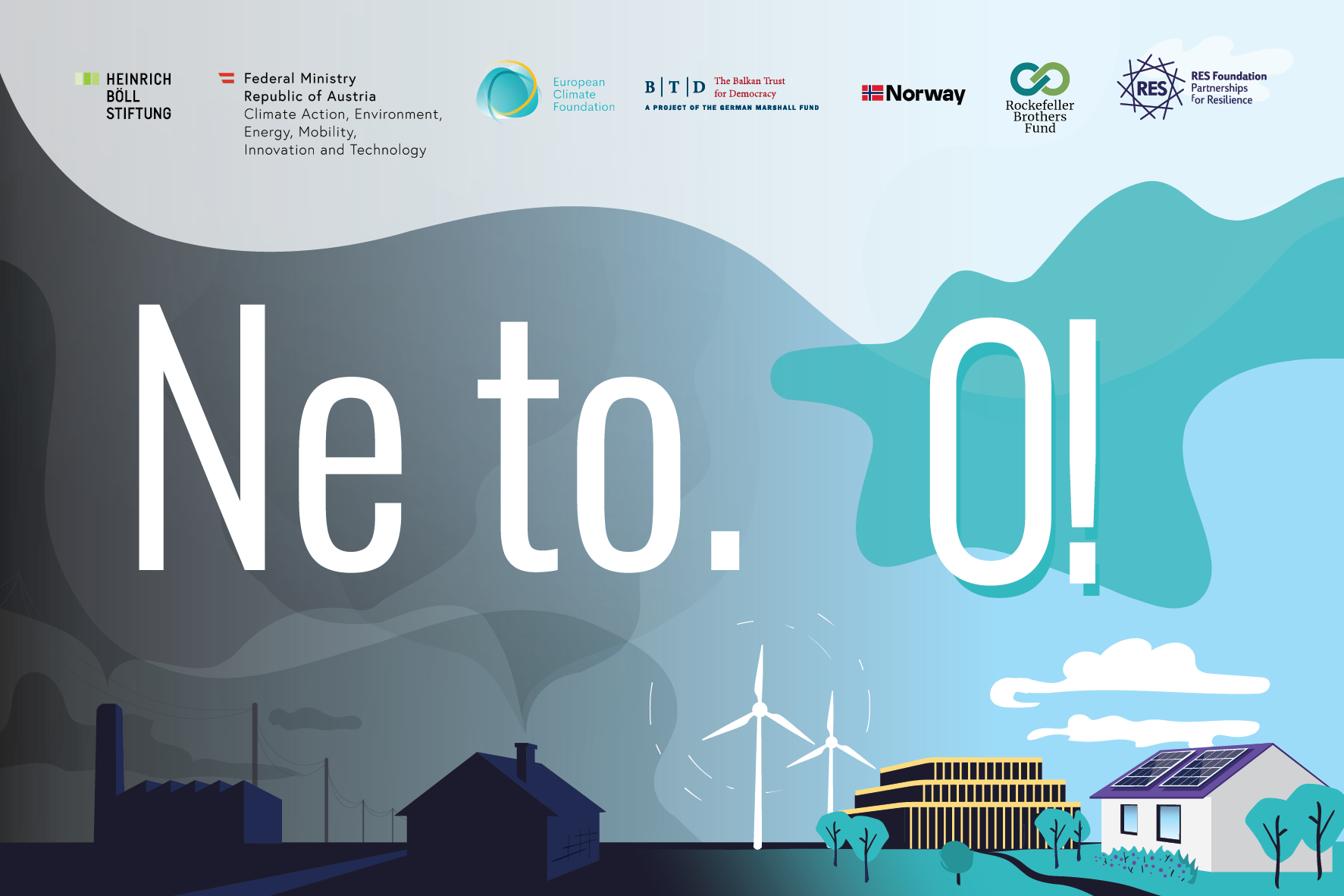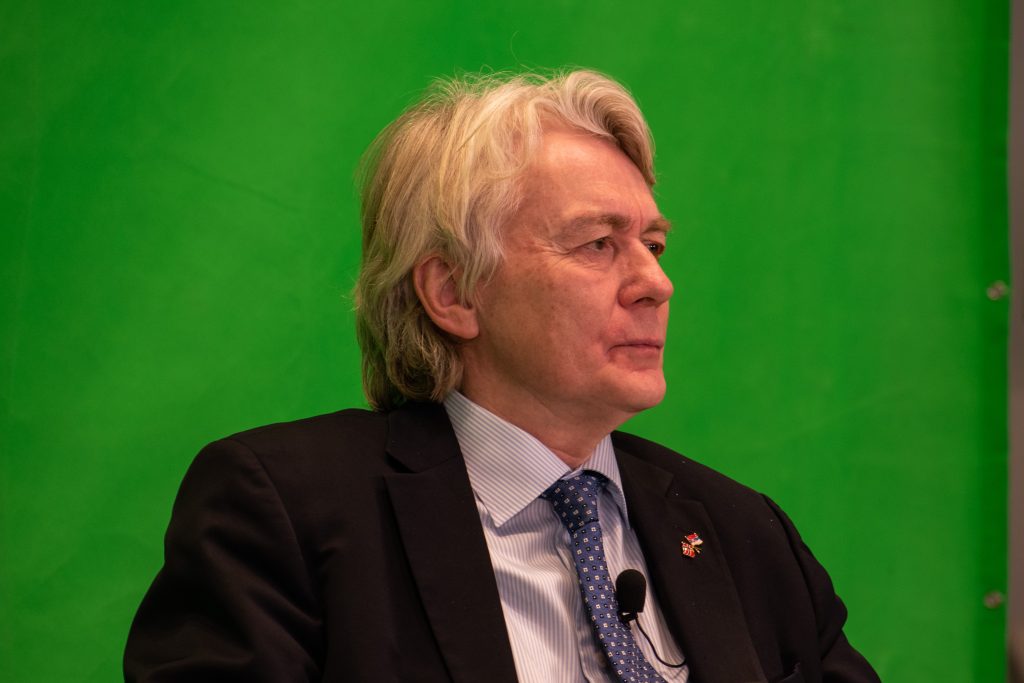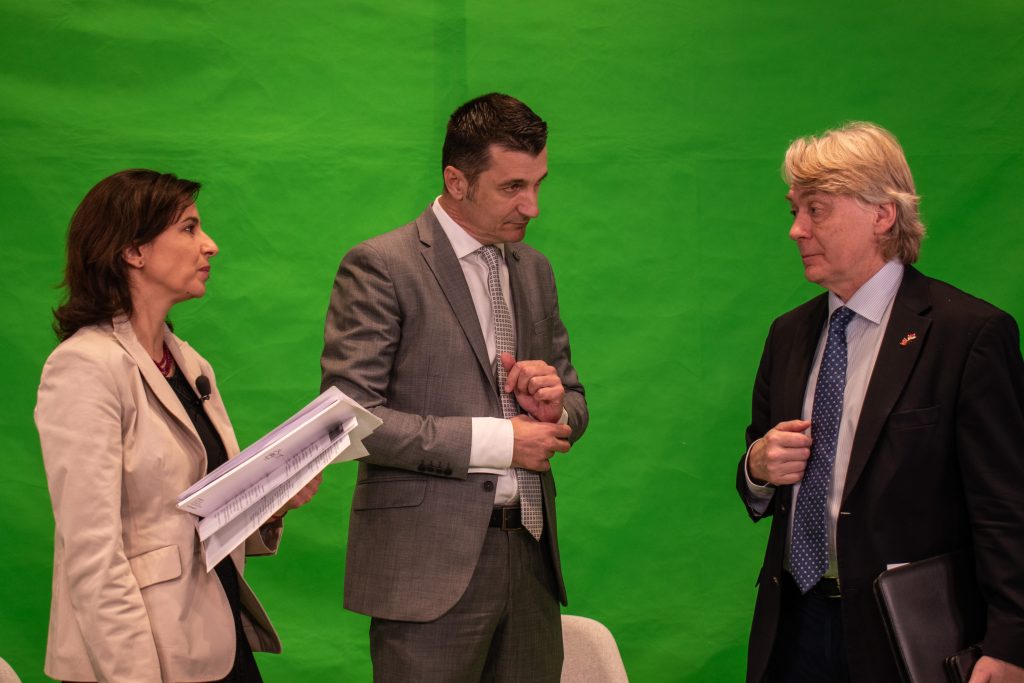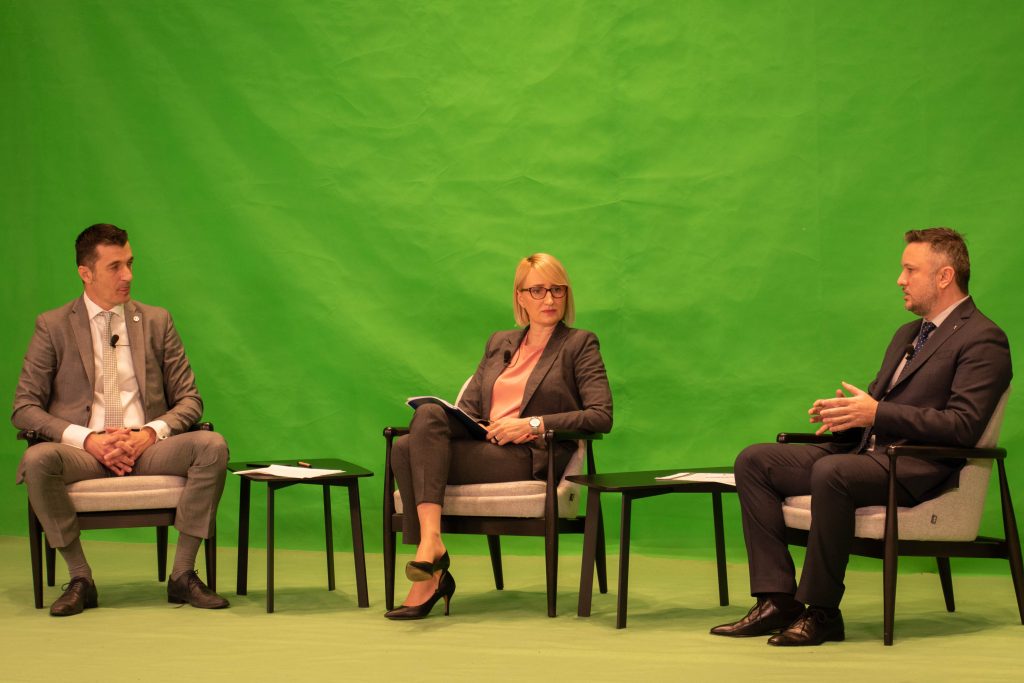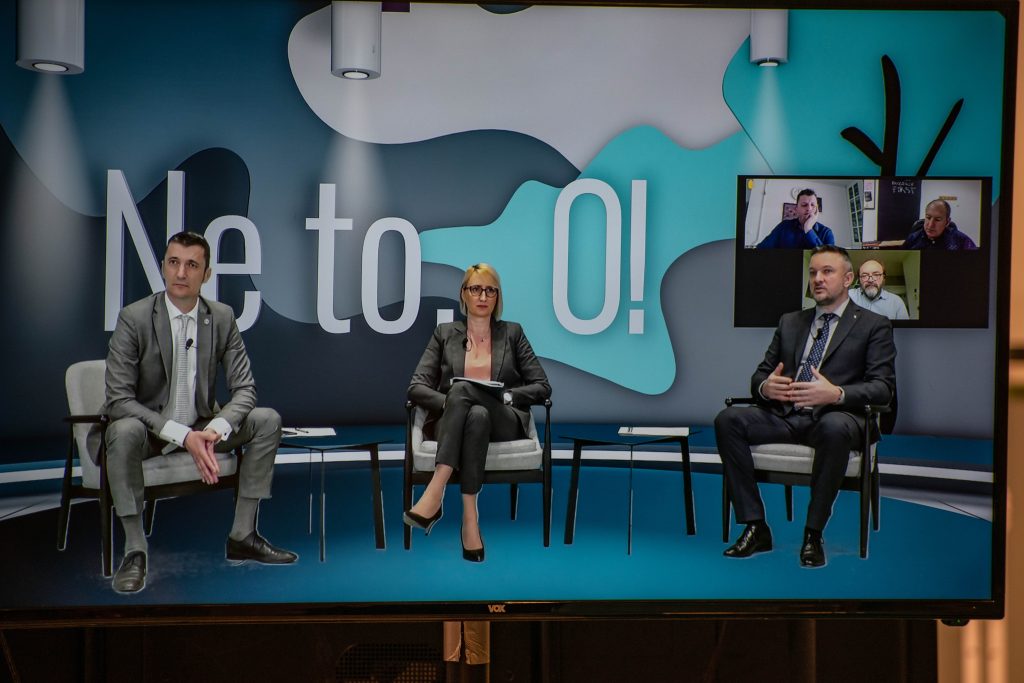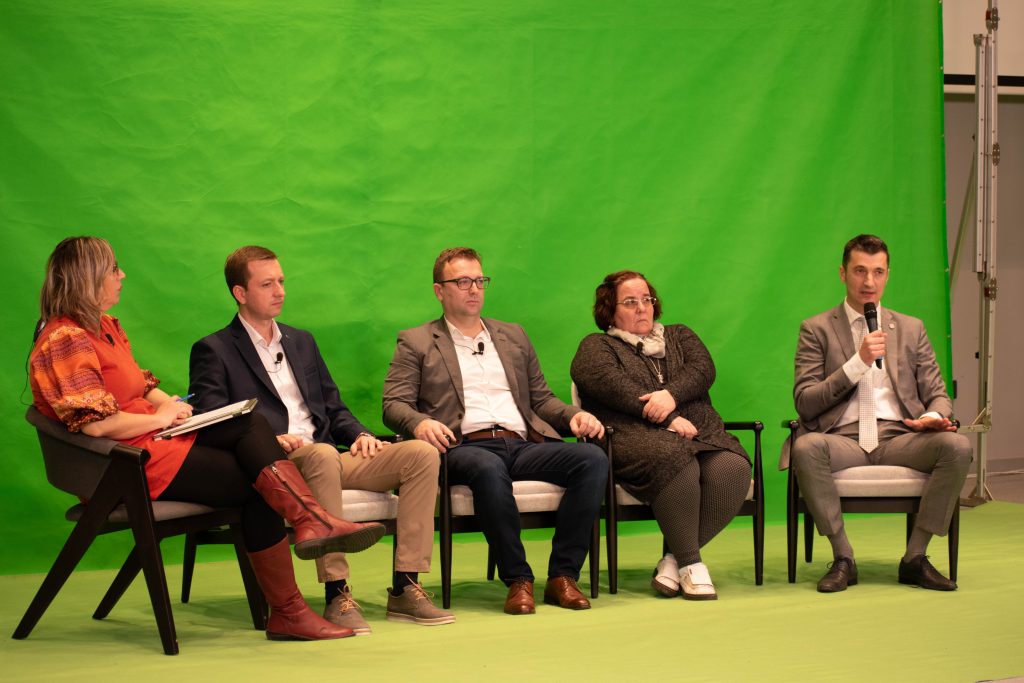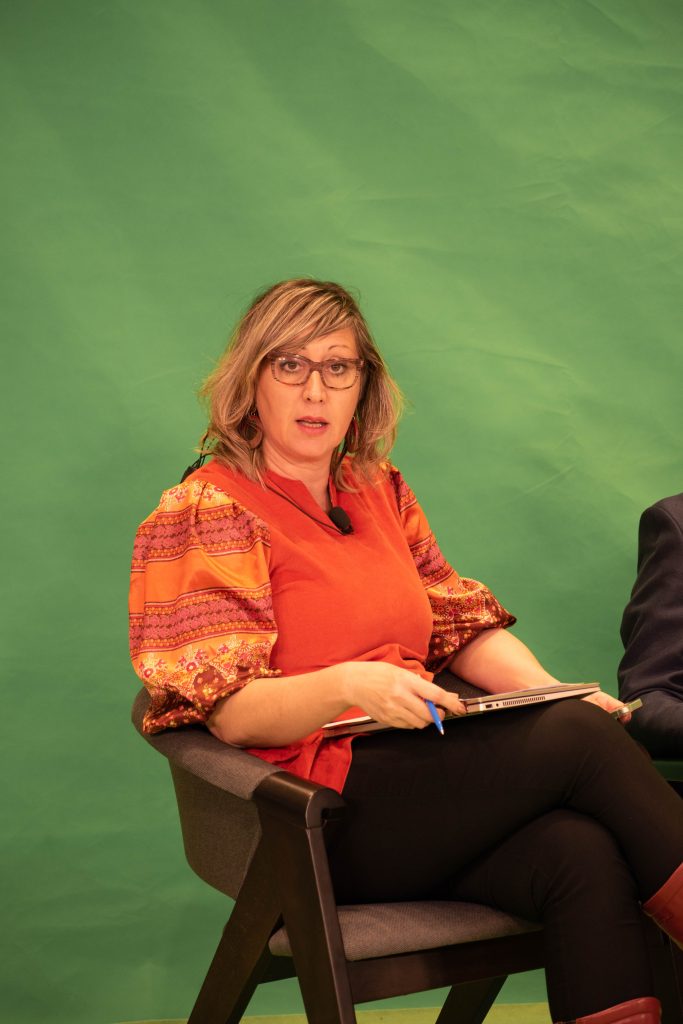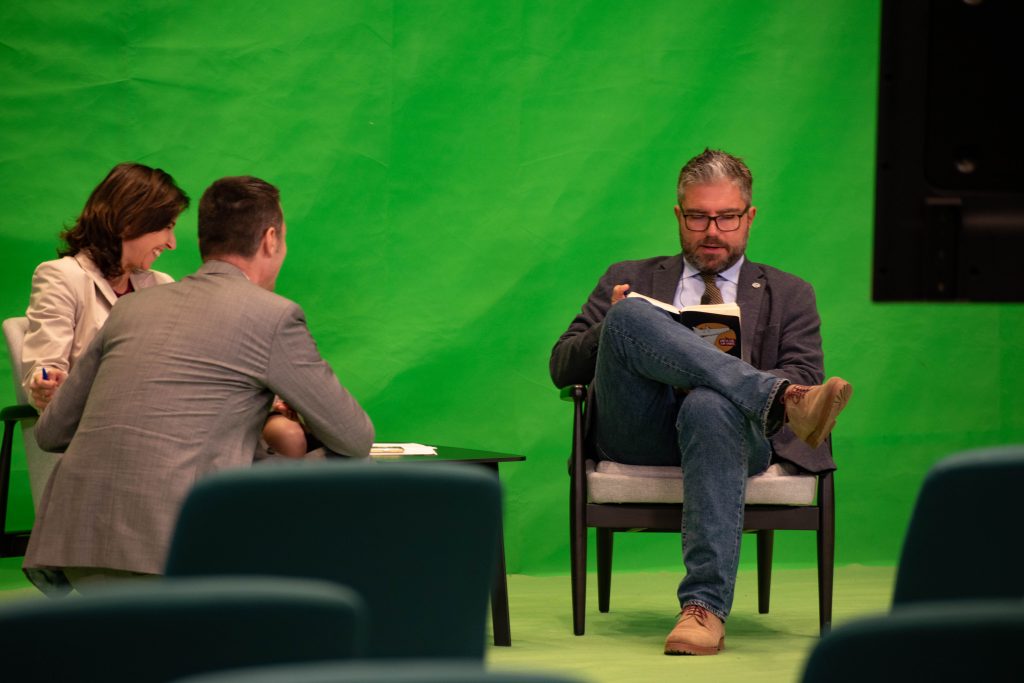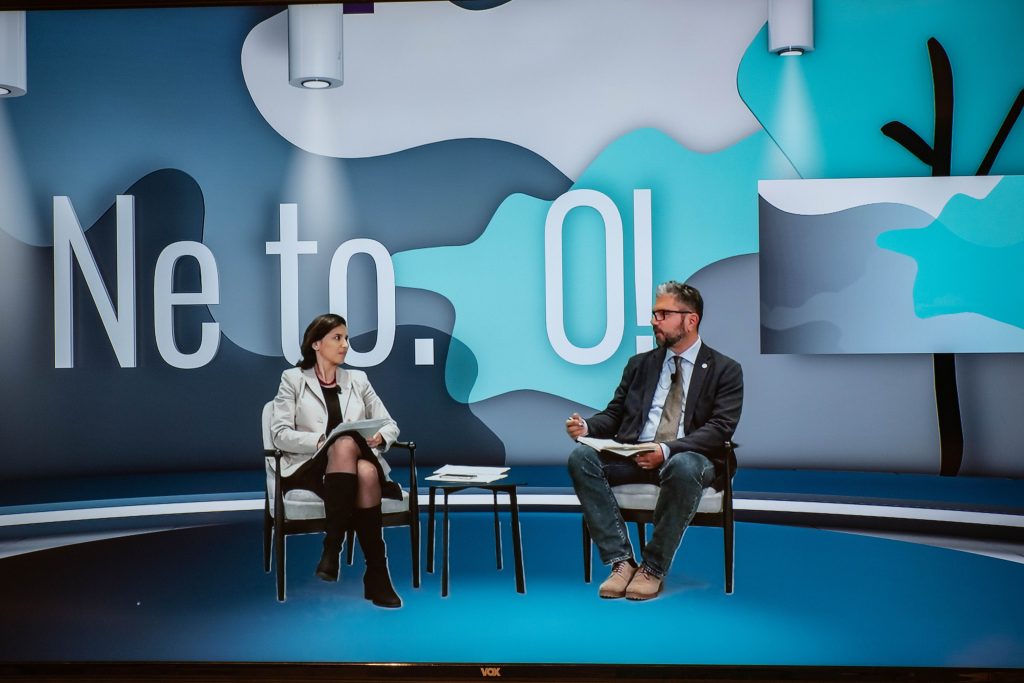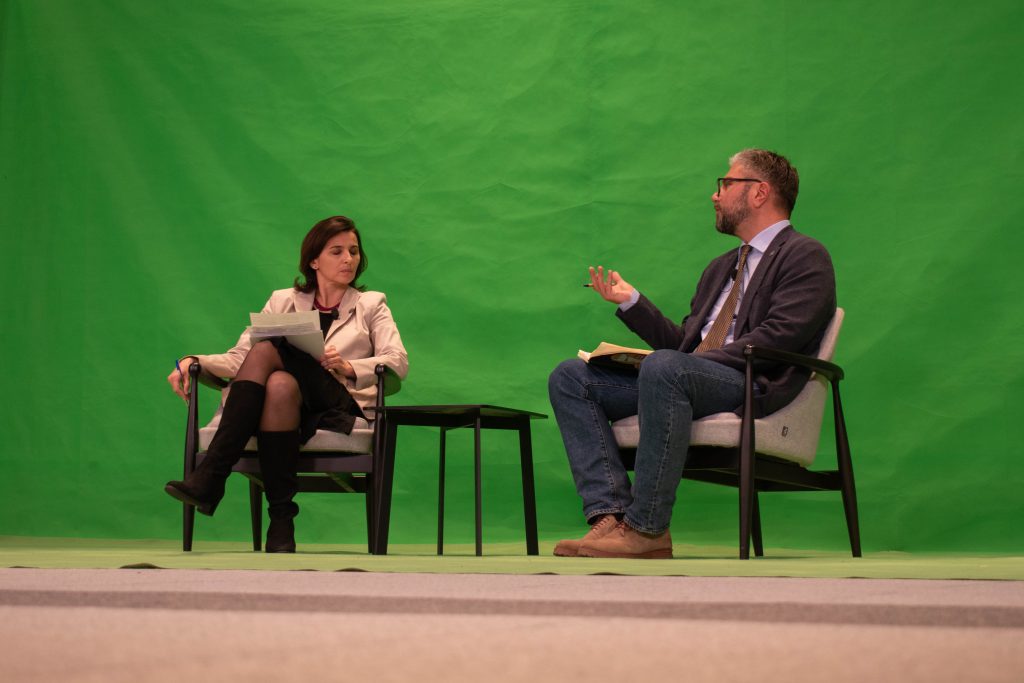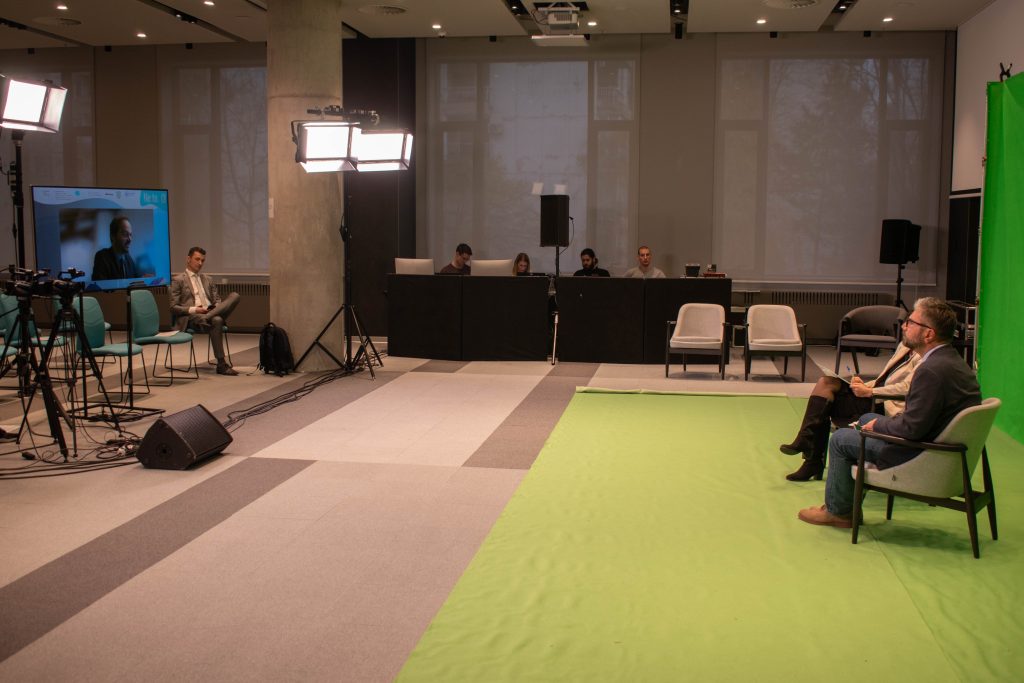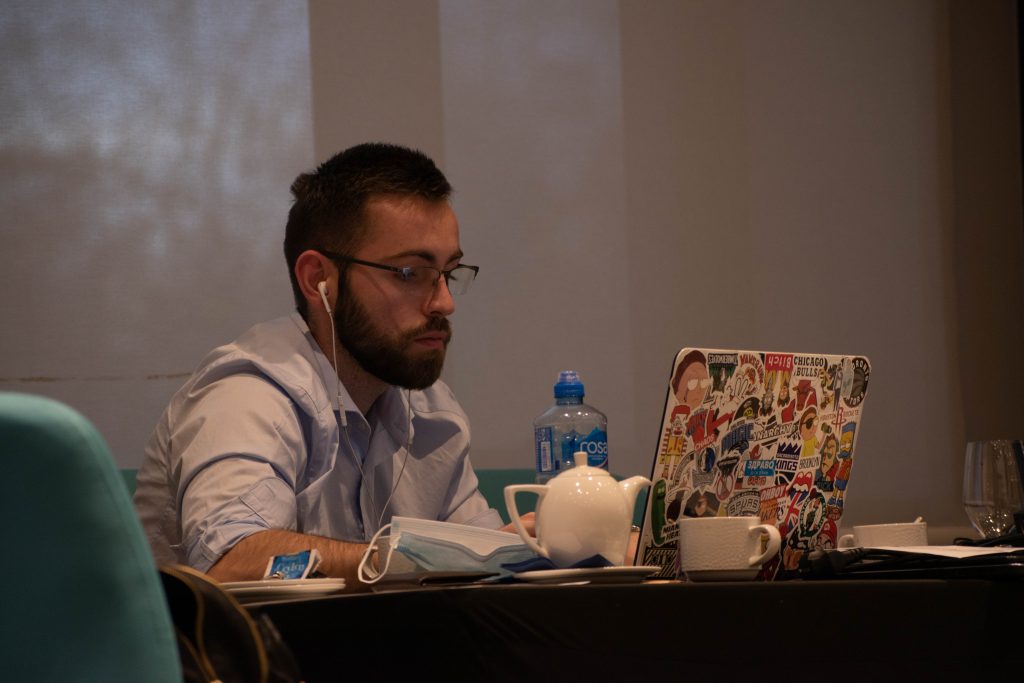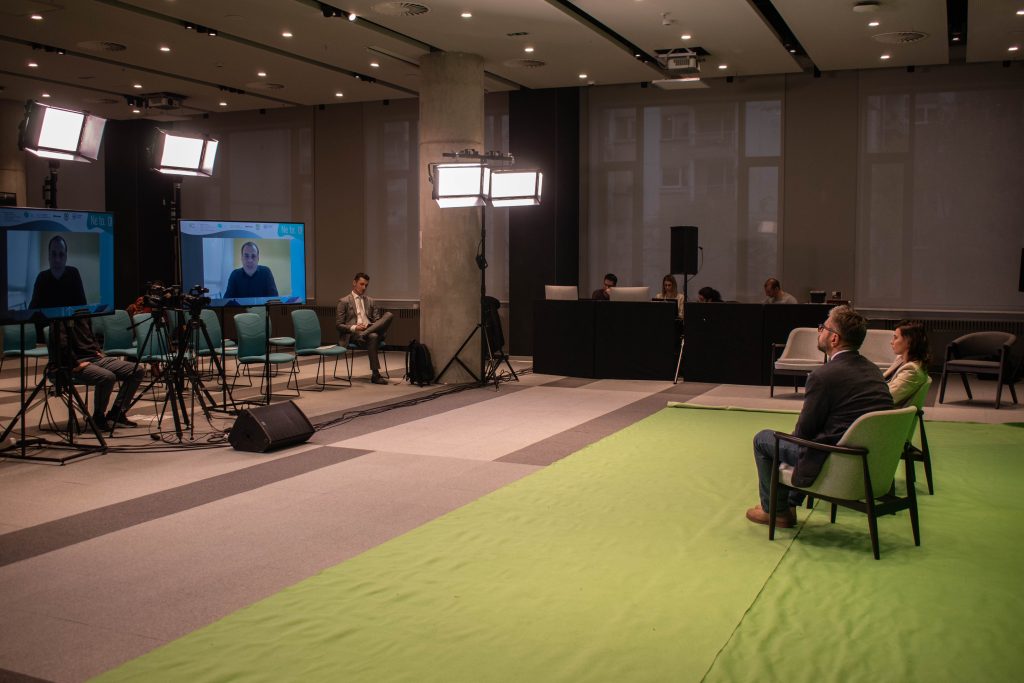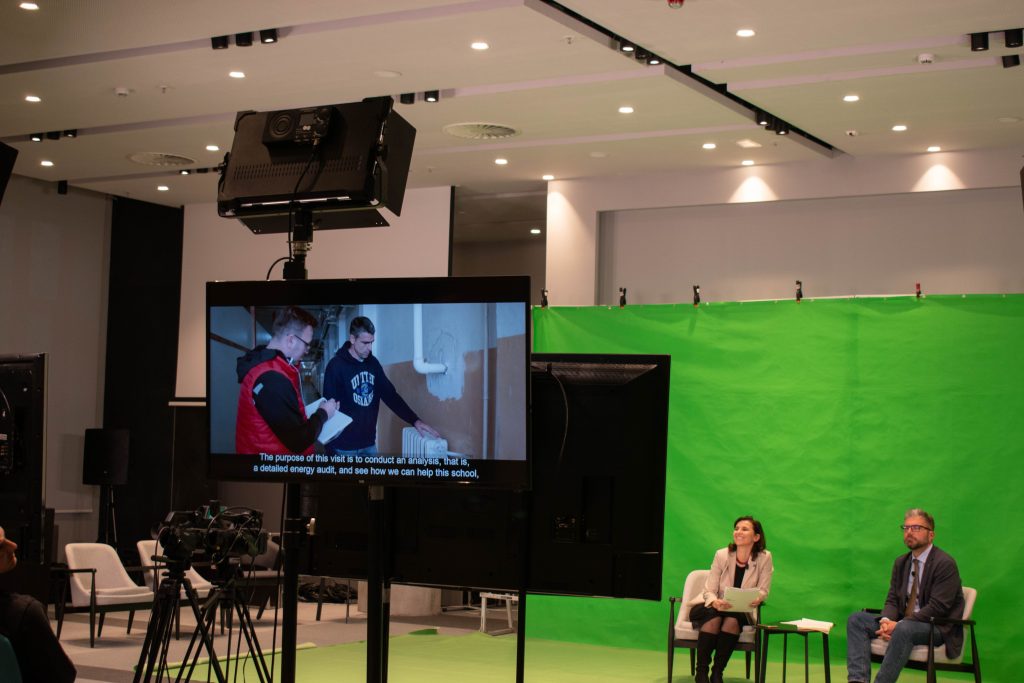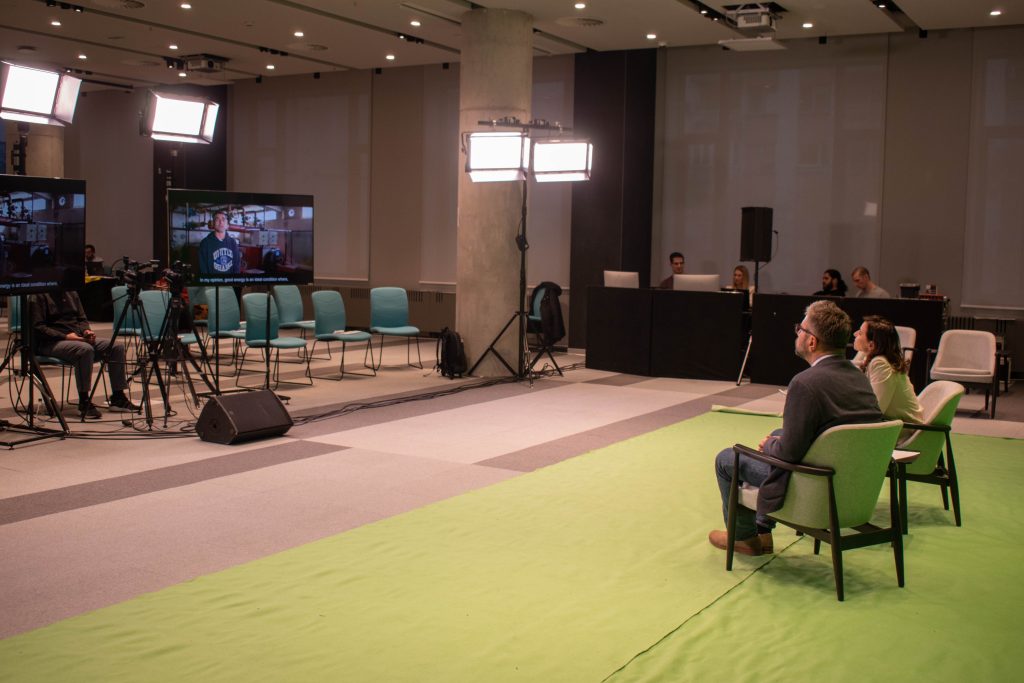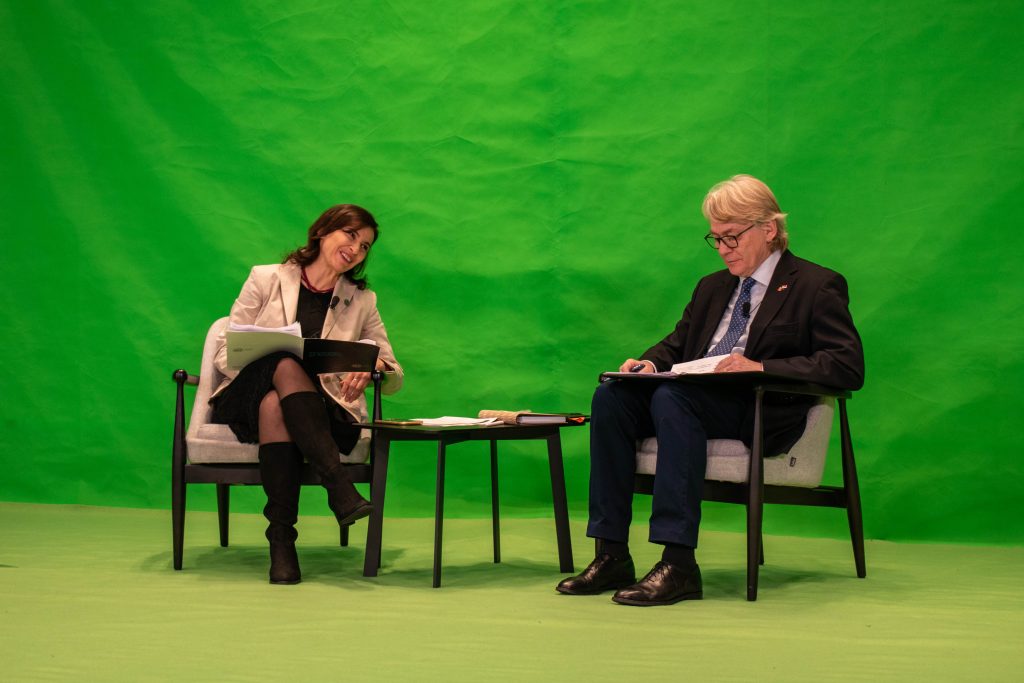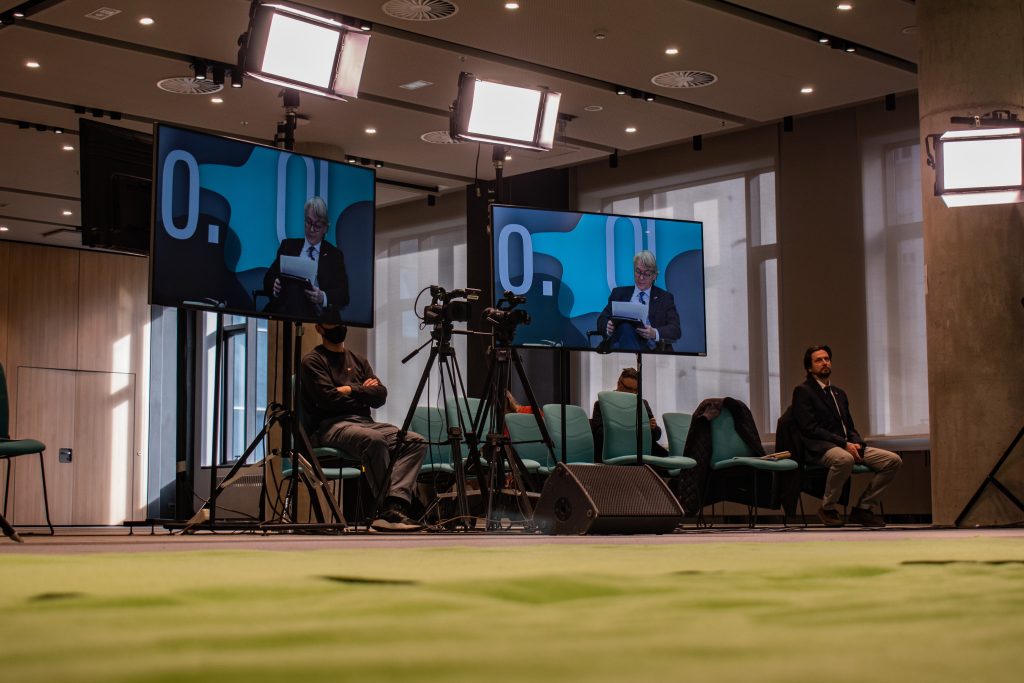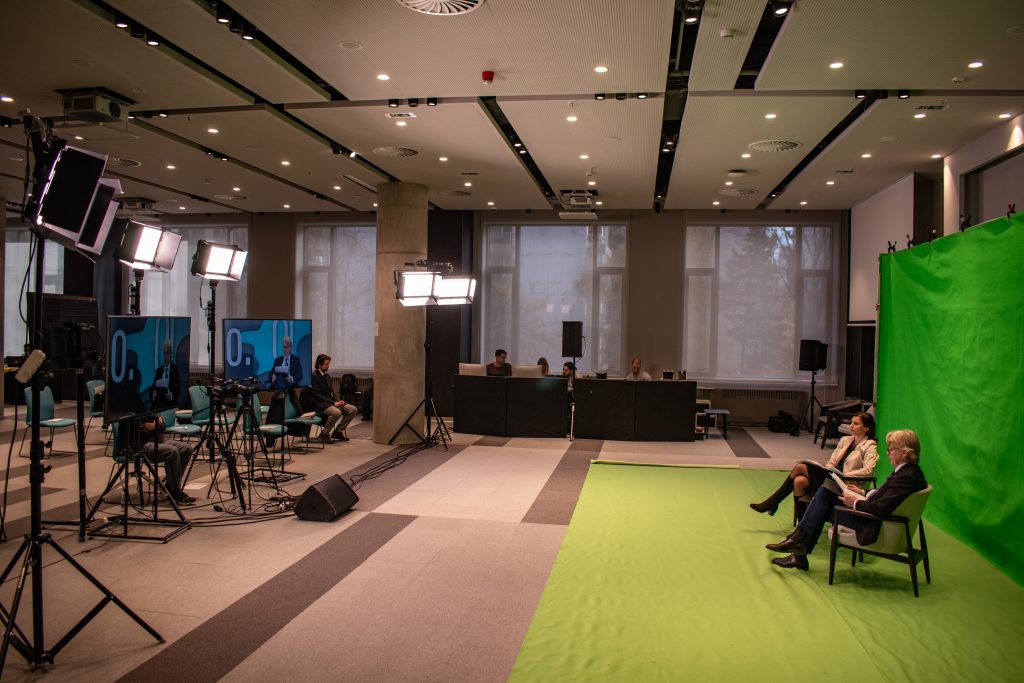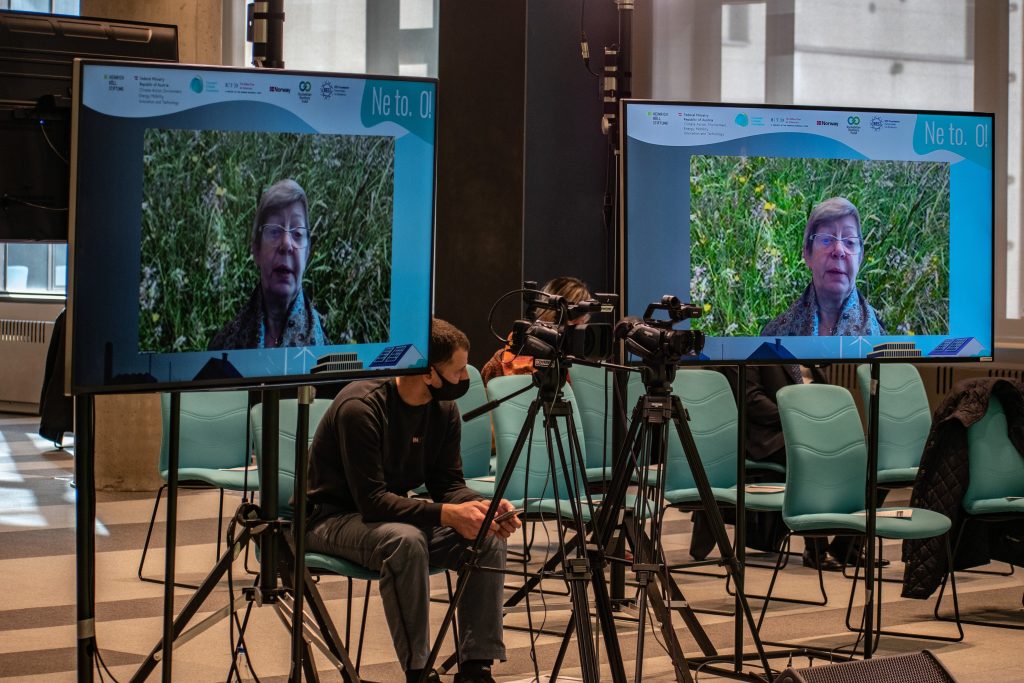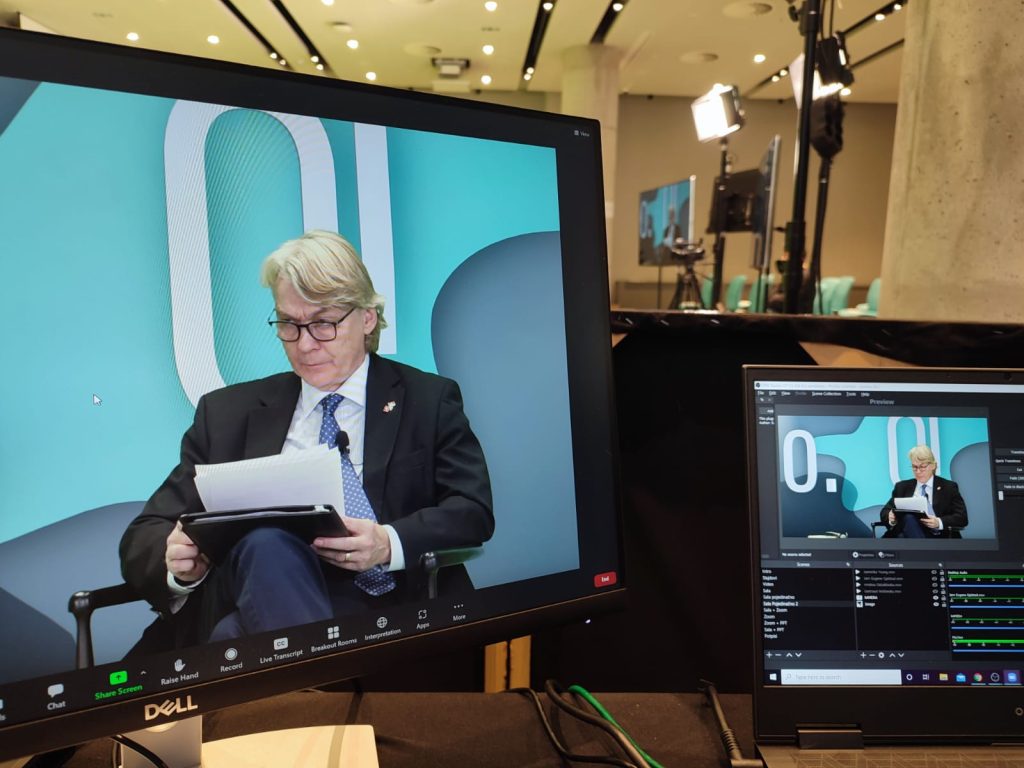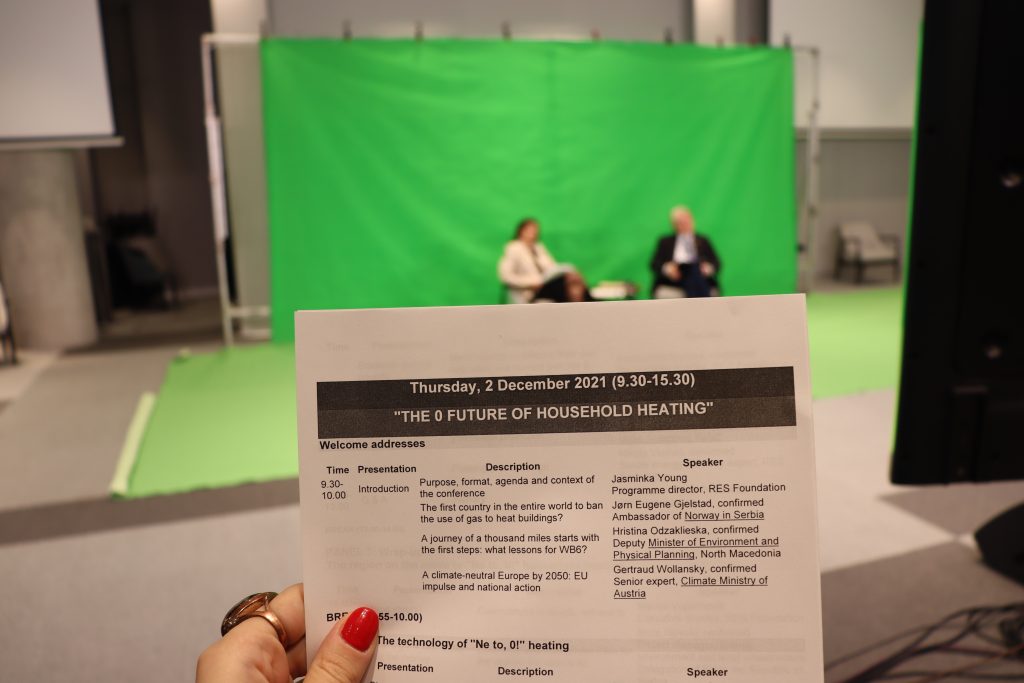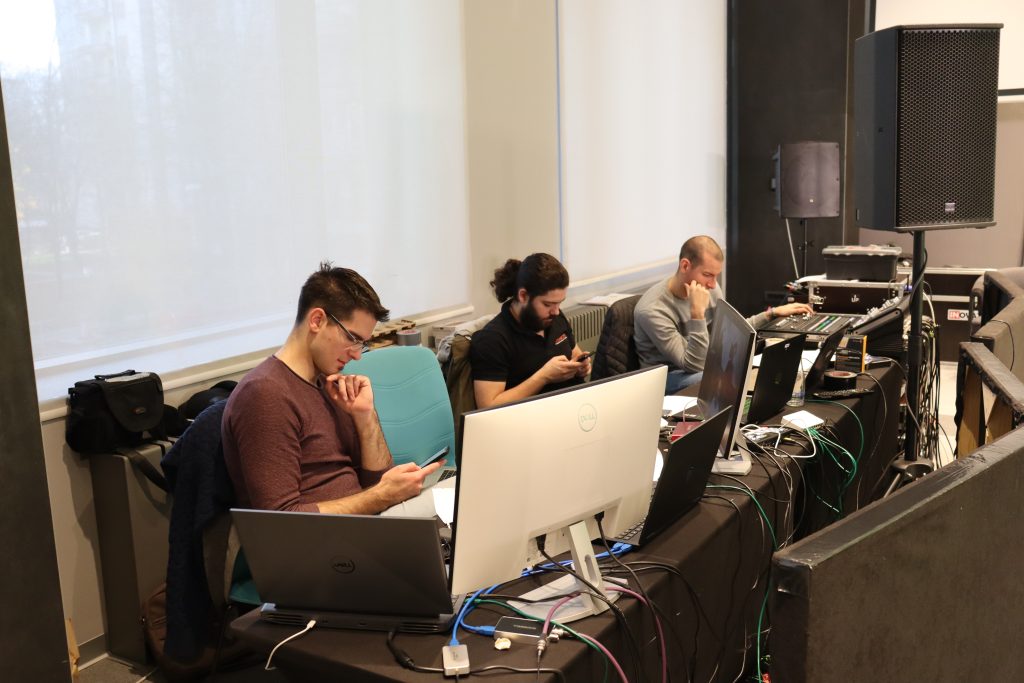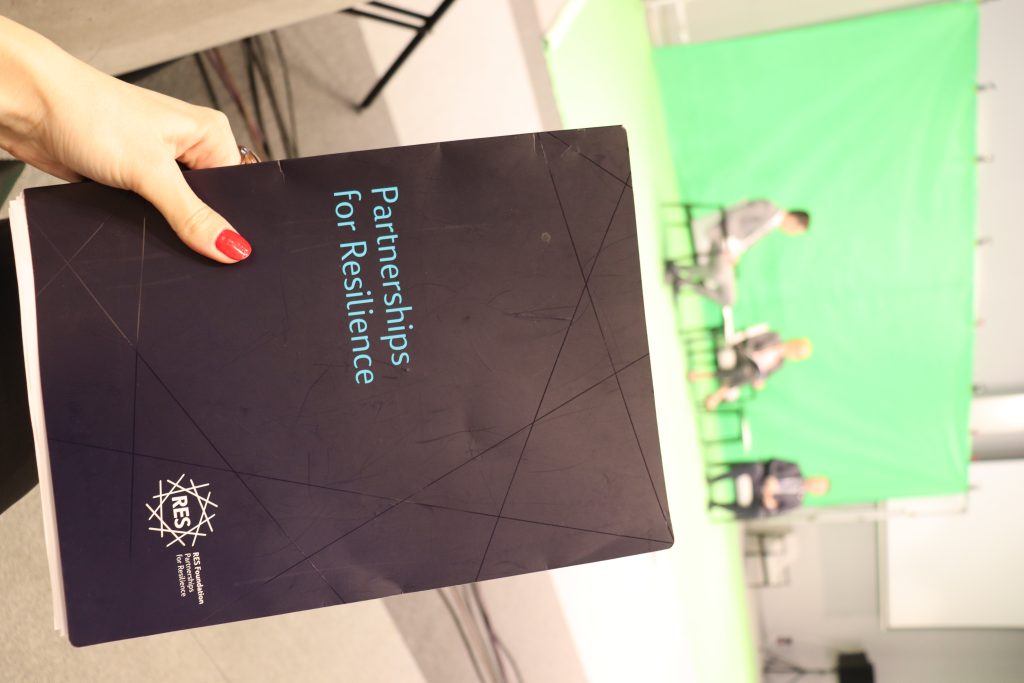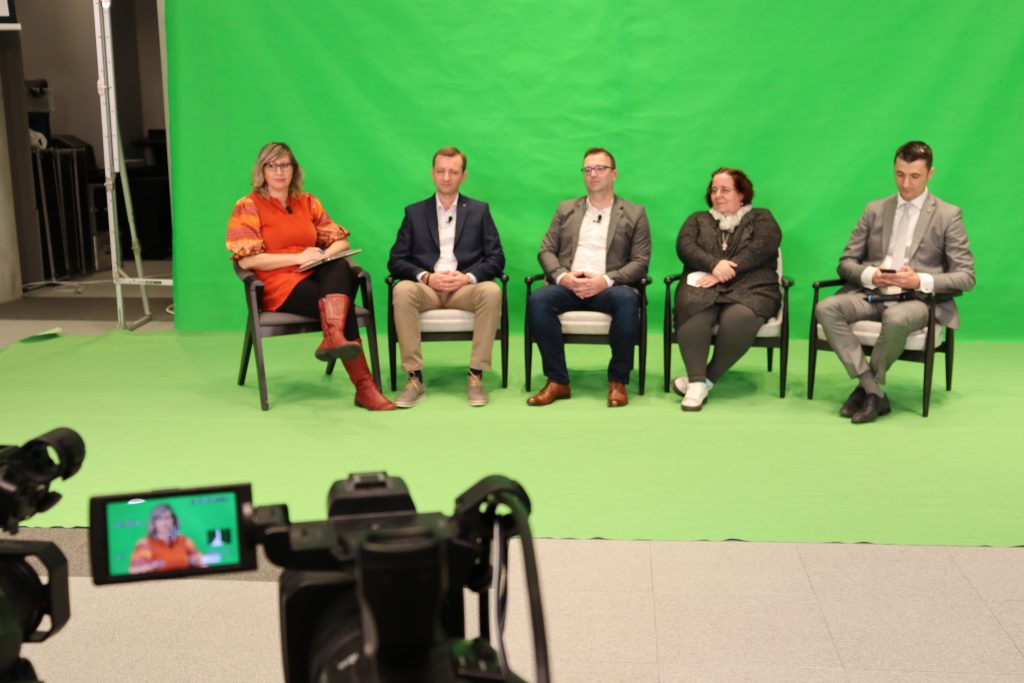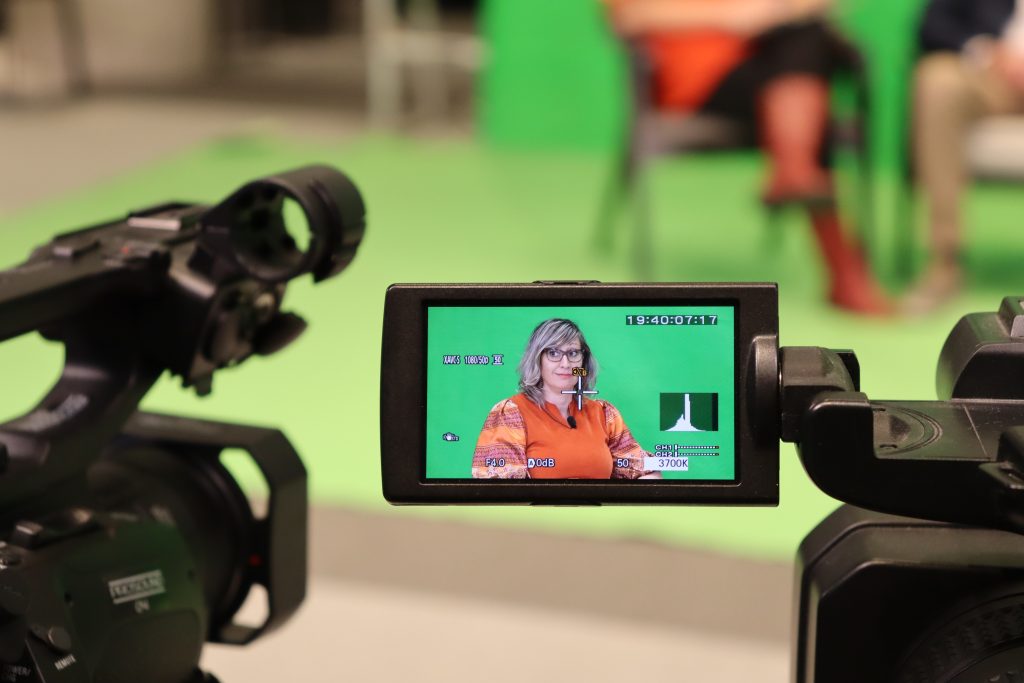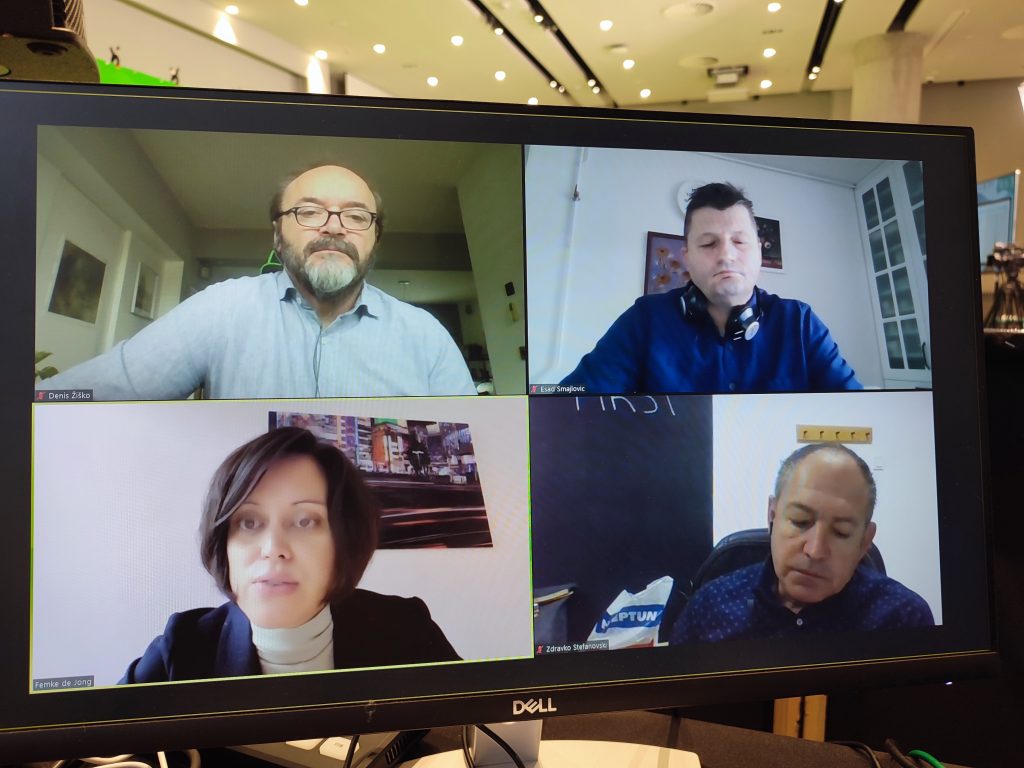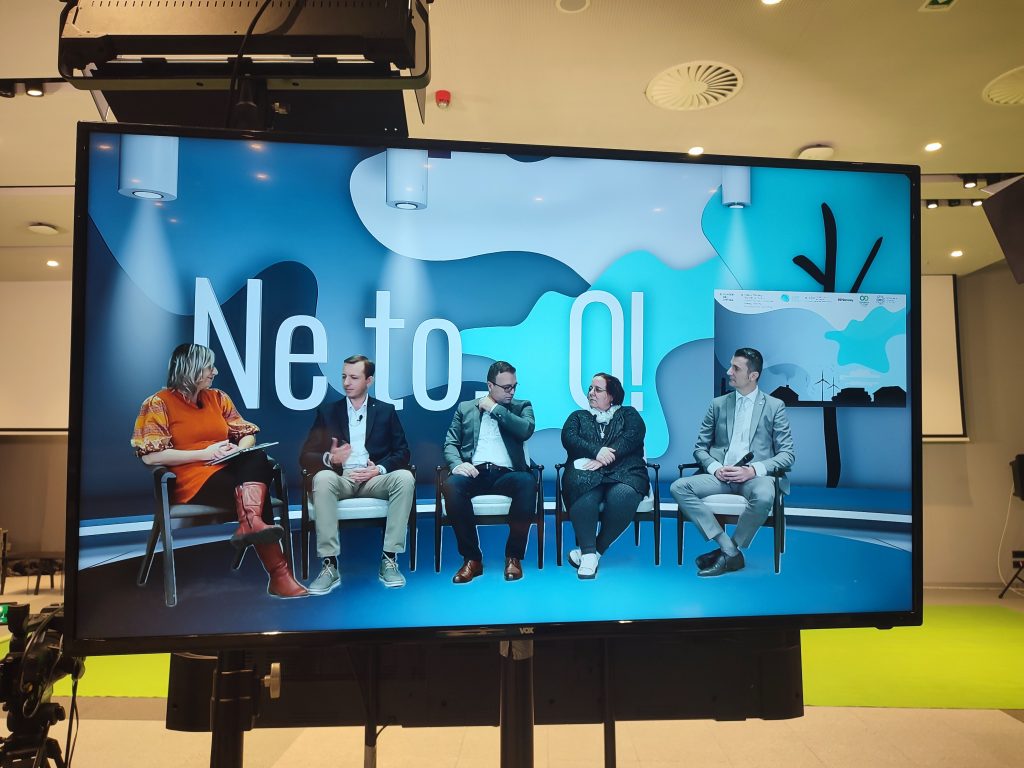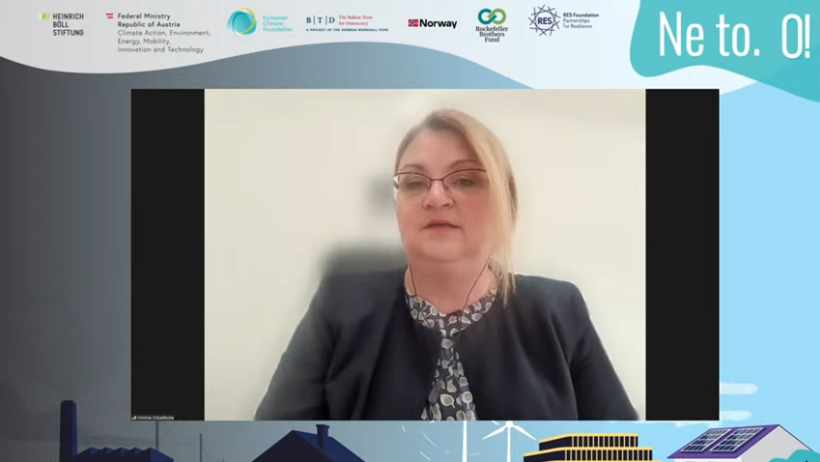The second day of the annual regional policy conference “No. 0!” on How to win the Balkan air-pollution dodgeball, organized by the RES Foundation, was focused on decarbonization of heating and ways to improve air quality, as human well-being and health are the most important resources on which the transition must rely. Heating is one of the biggest challenges of the energy transition in the Western Balkan region, and is crucial for solving the problem of air pollution, since in Serbia two thirds of PM2.5 particles come from individual combustion devices.
Through three panel discussions, we tried to determine which technologies can help the transition to net zero. We looked at standards and principles, covered poverty, gender, social, regulatory, public health aspects, that are part of the puzzle when it comes to transition to net zero heating, and there was also talk of investment and the need to unite in this endeavor.
Programme director of RES Foundation, Jasminka Young, talked with the Ambassador of the Kingdom of Norway to Serbia, Jørn Eugen Gjelstad, a representative of the first country in the world to ban the use of fossil fuels for heating buildings, about the Norwegian perspective on ways to reduce air pollution. Ambassador Gjelstad emphasized that air pollution is the greatest threat to human health, responsible for over 400,000 premature deaths a year on the European continent. According to WHO estimates, as much as 90% of the world’s population is exposed to air pollution at some point. People cannot choose the air they breathe, where they live and therefore it is a social responsibility to introduce policies and actions that can measure the level of pollution, to address its root causes and to do something about it. We all need to participate in this endeavor. Norway and UNICEF are implementing a project to raise awareness among school-age children about air pollution, as children are a group that is particularly vulnerable. Norway today has the lowest risk of death due to pollution in Europe. The path that made this possible led through responsible policy-making, its consistent implementation and raising awareness on the issue. Some of the measures included a tax on carbon emissions since 1991, a ban on all firewood appliances that do not comply with modern standards, as well as banning the use of heating oil earlier this year.
Hristina Odžaklieska, Deputy Minister of Environment and Physical Planning of Northern Macedonia, shared the experiences her country has gained through measures implemented to reduce air pollution from individual sources. As in other countries of the Western Balkans, air pollution is a source of great concern in Northern Macedonia, as the limit values set for the protection of human health for particulate matter have been significantly exceeded. The biggest problems exist in big cities, especially Skopje. Wood remains the most widely used fuel for heating in the country; it is used by 49% of households and greatly contributes to the problem of air pollution. Three programs have been launched, subsidies to increase energy efficiency, to buy solar panels and to buy pellet stoves, and initiatives also exist at the local level, primarily in Skopje.
The need for joint action was also emphasized by Getraud Wollansky, a senior expert at the Austrian Ministry of Climate, which currently supports RES Foundation’s project to design evidence-based, efficient and socially inclusive replacement schemes for individual heating devices. No matter how you heat your home, you breathe the same air and suffer from the same health threats from pollution coming from an estimated 3 million households in the Western Balkans that still burn firewood. The situation can be mitigated and resolved only through joint action.
Technology of “Ne to. 0!” heating
The first panel of the second day, in which the moderator Aleksandar Macura talked to the participants about the technology that can lead to net zero emissions from heating, was opened by Femke de Jong from the European Climate Foundation, presenting the results of her organization’s research. Currently, the building sector has a significant contribution to climate change, as 36% of greenhouse gas emissions come from this sector, which is not yet on the path to carbon neutrality by 2050. The measures she proposes are accelerating energy renovation, adopting the transition from fossil fuels and replacing construction materials. The climate crisis has caused fluctuations in energy prices, so we need to rethink the ways we heat. Heat pumps are the most affordable option for consumers to decarbonize heating, while in urban areas they are high density district heating systems, which are powered by heat pumps.
Senior energy efficiency expert Zdravko Stefanovski gave an overview of the structure and characteristics of the building sector in the Western Balkans region, highlighting its shortcomings and aspects that need improvements. Citizens of Western Balkans live in 523 million square meters, divided into 7.4 million housing units. Biomass heating predominates. Different funding approaches and methodologies need to be considered, because without a good concept there will be no success. Heating costs account for about two-thirds (65%) of average household energy costs. Esad Smajlović, also a senior expert on energy efficiency, believes that a plan and a systemic solution are necessary, since the spontaneous actions of certain cities do not represent a solution to the problem.
Denis Žiško from the Center for Ecology and Energy spoke about the example of Tuzla and the manner and circumstances that helped them influence the local authorities in Tuzla to allocate funds for subsidies for thermal insulation and replacement of fossil fuel devices with heat pumps. He referred to the conditions of the tender, the response of the citizens and the initial mistrust that existed among them. The outcome of the tender was the subsidization of 350 households, but in the end, the subsidies also included pellet stoves, which are problematic because they contribute to air pollution with PM2.5 particles of some 34%. He believes that we are not rich enough to come up with cheap solutions that will not solve the problem permanently.
Device manufacturers are an important link on the road to net 0. The sales director of the company “Alfa-Plam”, Ivana Stevanović Ristić, spoke about the heating device market, about price movements and their causes. In the EU, the eco-design standard for pellet boilers came into force in January 2020. Its full implementation, which will include other similar devices, will begin in January 2022. Ms. Stevanović Ristić reveals that due to the increase in pellet prices, consumers are taking a step back, and the demand for wood boilers is growing. Alfa-Plam will align its product with the standard by the end of the year. The company already has a wood stove in accordance with the eco-design directive, called 85G.
The role of district heating in the energy transition process was the topic of a presentation by Bojan Bogdanović, General Manager of the Renewable Energy Fund in District Heating Systems at EBRD. District heating systems remain the best solution for heating apartment buildings and should be installed whenever possible. The European Bank for Reconstruction and Development will soon start work on greening the district heating system in nine cities in Serbia, as well as on project of energy renovation. One of the most innovative solutions will be applied in the city of Kragujevac, where the residual heat released by the local data center will be used for the district heating system. Support for single households was provided by EBRD through the Green Energy Financing Fund. About 10,000 households in the Western Balkans were supported by a grant that covered 20% of the costs incurred in replacing the main heating device or renovating the building. EBRD will not co-finance projects that increase the carbon footprint.
Principles of “Ne to. 0!” heating
The focus of the second panel, moderated by Tanja Popovicki, RES Foundation Program Manager, were principles, but also various aspects necessary for the energy transition process, including health, regulations, energy poverty, sustainable resource management, and gender aspect.
Vladimir Nikolić, Senior Advisor to the Forestry Directorate of the Ministry of Agriculture, Forestry and Water Management, spoke about sustainable forest management. Serbia is a medium-forested country and more care is needed for privately owned forests. Mr. Nikolić stated the principles of sustainability and durability are the important principles in forest management. Wood production is only one of the purposes of forests, but there are also health and recreation, noise and soot absorption. The task of foresters is to provide the market and customers with the product, respecting the mentioned principles. Three products: technical, heating and wood residue (15% of gross wood volume). The forestry profession advocates the cascading use of wood for carbon storage.
Programme director of RES Foundation, Aleksandar Macura, spoke about the importance of adopting the definition of energy poverty, although it will not cover all those who could not finance the unplanned cost of 13,000 dinars on their own, for instance. Energy poverty must be a criterion for obtaining future support schemes either to improve energy efficiency or to replace appliances. The problem of energy poverty is not limited to income, but also includes access to resources, living conditions, efficiency of devices and buildings. Preliminary results of the energy balance for 2020 in the Republic of Serbia according to the changed methodology have been published. According to the results of the same, the country burns one million tons more wood fuel than previously stated, which is a growth of 43%. It is necessary to work on the field to get to know the energy poor.
Experiences from the field were shared by Svetlana Drakul, head of the environmental department of the City of Užice. This local government supports private households in reducing particle pollution by improving thermal comfort and replacing heating devices. In total, over 2,000 households used such schemes and received a total of 162 million dinars. When it comes to the gender aspect, field experiences show that the initiators of the replacement are mostly women. In that sense, she encounters prejudices on the field as a woman.
The health aspect of the energy transition was covered by Dr. Branislava Matić Savićević from the Institute of Public Health “Dr. Milan Jovanović Batut”. Organic substances released by burning wood in solid fuel stoves, which are very dangerous, can enter the bloodstream, cause cardiovascular and cerebrovascular diseases, and even urinary tract cancer. Many substances act as endocrine modulators and can disrupt a woman’s reproductive state. Some substances from early childhood can manifest after several decades. It is possible to show decision-makers the harmful effects of air pollution quite accurately. The Faculty of Medicine is curatively oriented and does not pay enough attention to prevention.
Nikola Vujović, a senior expert on energy efficiency from RES Foundation, spoke about the regulatory aspect of the transition, specifically about the phasing in eco-design. Full implementation of the Eco-Design Directive in Serbia will finally eliminate the great incoherence that exists in the energy efficiency sector. It connects seasonal energy efficiency and permitted emissions of harmful particles. The devices will have to meet the prescribed parameters in order to enter the market at all. Manufacturers will need to clearly indicate the specifications on their packaging and on their websites. The purpose of the directive is to improve the efficiency of the devices themselves in order to improve the state of the environment through limited emissions.
Wrap-up: The region on the move to “Ne to. 0!” heating
The concluding panel brought a potential roadmap, which would include all stakeholders. Since they are part of the puzzle, they are also part of the solution.
Executive Director of RES Foundation, Stevan Vujasinović, through a conversation with the moderator Jasminka Young, shared findings from the project of designing a public policy that supports inefficient solid fuel replacement schemes. As for the average user, one in four users has never changed the device. On average, between 50 and 70% of users do not want to change them at all. Those are mostly solid fuel device users, which are not in line with eco-design, inefficient, polluting, while users are still satisfied with them. On the other hand, 20% is ready and willing to replace their device now, but in that case the current budget is insufficient. The main motivation that would lead to replacement is the ease of use of the new device. Citizens do not have the opportunity to hear from doctors about the adverse effects of the environment and indoor air pollution, they do not get the right information from the channels they trust. Time is a very important aspect in the story of replacing inefficient devices. Speaking of the way forward, 130,000 new but technologically obsolete solid fuel devices, which we want to abolish or upgrade, are being sold in the Western Balkans market. On the other hand, about half of the households are not able to afford even these devices.
The representative of the UNEP Regional Office for Europe, Thomas Marques, underlined that the goal is a common path forward, because the UN is only one entity, and the problem that is multidimensional cannot be solved individually; cooperation and exchange of information are necessary. The project manager in the Delegation of the European Union, Boris Ilijevski, spoke about the projects they launched, the goal of which is to raise the awareness of citizens, as well as to support local district heating systems with renewable energy sources. The great challenge that the Green Agenda for the Balkans reminds us of is the issue of biodiversity.
The regional perspective was presented to us by Jozsef Feiler, Director for Southeast Europe and Hungary of the European Climate Foundation. He pointed out that due to the necessary speed towards the transition, we cannot follow the most logical path, which means first isolating buildings, and then purchasing the device. The residential sector is probably the most difficult to decarbonize, it is more complex and closer to human everyday life. Climate challenges are a priority for the ECF; they want to see a reduction of solid fuel use and increased efficiency in the region.
The conclusion of the conference was summarized by Mr. Vujasinović through three proposed categories of actions. First of all, we need a plan, which we do not have at the moment, and it is necessary for it to be ambitious and focused on the pace of implementation. We should set a “smokies” phase-put date. The second category refers to finances and smart management of available funds. A plan for effective distribution of funds is needed, so with this goal, market segmentation, hierarchy of technologies (more funds for more sophisticated devices), and even geographical discrimination could be used, in the sense that more funds are allocated for more polluted regions when it comes to implementation of measures, because the most vulnerable need help the most. Standardized knowledge at the national level, which is essentially related to good organization, is the third category that has been singled out. Most of the burden will remain on local governments, the government can help them, programs and plans, public policy, to be strong background support for our front office.
The conference pointed out to us the ways and possibilities, challenges and necessities, and it is up to us to keep the region on the road to Net 0.

